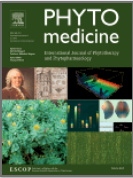 Spinal muscular atrophy (SMA) is a rare neuromuscular disease and a leading genetic cause of infant mortality. SMA is caused primarily by the deletion of the survival motor neuron 1 (SMN1) gene, which leaves the duplicate gene SMN2 as the sole source of SMN protein. The splicing defect (exon 7 skipping) of SMN2 leads to an insufficient amount of SMN protein. Therefore, correcting this SMN2 splicing defect is considered to be a promising approach for the treatment of SMA.
Spinal muscular atrophy (SMA) is a rare neuromuscular disease and a leading genetic cause of infant mortality. SMA is caused primarily by the deletion of the survival motor neuron 1 (SMN1) gene, which leaves the duplicate gene SMN2 as the sole source of SMN protein. The splicing defect (exon 7 skipping) of SMN2 leads to an insufficient amount of SMN protein. Therefore, correcting this SMN2 splicing defect is considered to be a promising approach for the treatment of SMA.
This study aimed to identify active compounds and extracts from plant resources to rescue SMA phenotypes through the correction of SMN2 splicing.
Of available plant resources, candidates with SMA-related traditional medicine information were selected for screening using a robust luciferase-based SMN2 splicing reporter. Primary hits were further evaluated for their ability to correct the splicing defect and resultant increase of SMN activity in SMA patient-derived fibroblasts. Confirmed hits were finally tested to determine the beneficial effects on the severe Δ7 SMA mouse.
SMN2 splicing was analyzed using a luciferase-based SMN2 splicing reporter and subsequent RT-PCR of SMN2 mRNAs. SMA phenotypes were evaluated by the survival, body weights, and righting reflex of Δ7 SMA mice.
In a screen of 492 selected plant extracts, we found that Brucea javanica extract and its major constituent Bruceine D have SMN2 splicing-correcting activity. Their ability to correct the splicing defect and the resulting increased SMN activity were further confirmed in SMA fibroblasts. Importantly, both B. javanica and Bruceine D noticeably improved the phenotypic defects, especially muscle function, in SMA mice. Reduced expression of heterogeneous nuclear ribonucleoprotein A1 (hnRNP A1) contributed to the correction of splicing by B. javanica.
